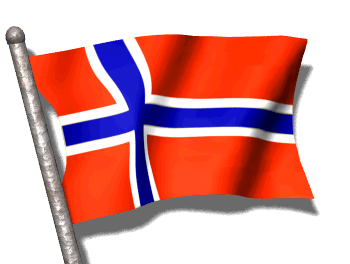





Jan Gert was born in 1917, the youngest child of Georges and Petra von Tangen.
Georges – my grandfather - had been brought up in Paris where his father – an expatriate Norwegian - had been in business. Georges took the French baccalauriat and then studied law at Oslo University, after which he joined the Swedish Foreign Office, Norway being then in Union with SwedenWhen the Union was dissolved in 1905, Georges transferred to the Norwegian government and played quite a part in establishing the new Norwegian Foreign Service. During WWI, he was a key government executive with responsibility for lend lease to the UK of the Norwegian merchant fleet, conducting negotiations in French, English or in Norwegian,!
My grandfather finished his career as Kabinettsekretaer, a job that combined being the King’s private secretary with that of being the Secretary to the Cabinet of the government of the day.
So Jan Gert was born into a fairly affluent home. He spent his early life in Bygdoy, a smart residential part of Oslo, not far from the city centre, before moving to a much bigger family home in Trosterudvieen in about 1925, next to where my cousin Jorgen lives now.
Jan Gert completed his Artsum (University entrance exams) in about 1936. He opted for a career in commerce and spent some time in London and – I suppose – in Oslo during which time he gained a reputation for being a bit of a daredevil, and with a very good eye for pretty girls ! Both he and my mother (Erna) were the greatest of friends, and they spent several very happy holidays immediately before the war with school friends at Nedre Nes, a large farm not far from Oslo owned by the Hvinden family.
(…Nils Hvinden (the oldest boy) was a great friend of Jan Gert, Arndt (the second boy) became a Battle of Britain fighter pilot (and survived being shot down at least once); and Lasse (the youngest) became my mother’s courier when she was working for the Norwegian Resistance movement.)
So Jan Gert was brought up in an international, liberal environment where there was plenty of coming and going both at his parents’ home in Oslo and in those of friends and relatives. Politics and economics would have been at the heart of many conversations, particularly during the extraordinary upheavals between the wars when nationalism had taken root in Germany and when Hitler and Stalin were trying to impose their particular ideologies on the Russian people, and when France and UK were doing all that they could to avert another European war.
When Russia invaded Finland in 1939, Jan Gert was one of a handful of like-minded Scandinavians who answered Field Marshal Mannerheim’s call for volunteers, and he was thanked by the Finnish state for his contribution when hostilities ceased in 1940.
On the very day he returned from Finland to Oslo, Germany invaded Norway and he re-joined his regiment, participating – as far as I am aware – in some skirmishes north of Oslo to slow down the advance of German troops thus allowing the escape of the Norwegian Royal family and government, and their eventual evacuation to UK, together with gold bullion from the central bank, in a British warship from northern Norway.
Jan Gert somehow managed to find room in a fishing boat and escaped across the North Sea to the UK together with a group of like-minded patriots , and he eventually found his way to Muskoka (near Toronto) in Canada which at the time was the focal point for hundreds young Norwegians wishing to learn to fly or to serve as technicians in an air force then being developed by a charismatic regular Norwegian officer named Ole Reistad.
Reistad knew something of Jan Gert’s experience in Finland and recognised his qualities as a public speaker (not unusual in Norwegians of his background), including his family’s extensive connections at government level.
Shortly after he qualified as a pilot in about 1942, Jan Gert was sent on trip to the Norwegian diaspora in the mid-West (Minnesota) where he delivered a punchy, pragmatic speech to raise awareness about the plight of Norway and to raise funds. In this, he would undoubtedly have been helped by his boss, Reistad; and on the fundraising side he would have been given guidance by Georg Vetlesen, a well connected Norwegian relative who at the time was the business executive in charge of fundraising in the US and Canada for the Norwegian war effort.
I understood from Jan Gert’s sister (my mother) that Reistad was so impressed by his personal and practical qualities that he planned to includedhim in the Commission to reconstruct Norway after the end of the war…
Sadly, that was not to be as he died in France aged just 26 on active service on that fateful day on 31 October 1943.